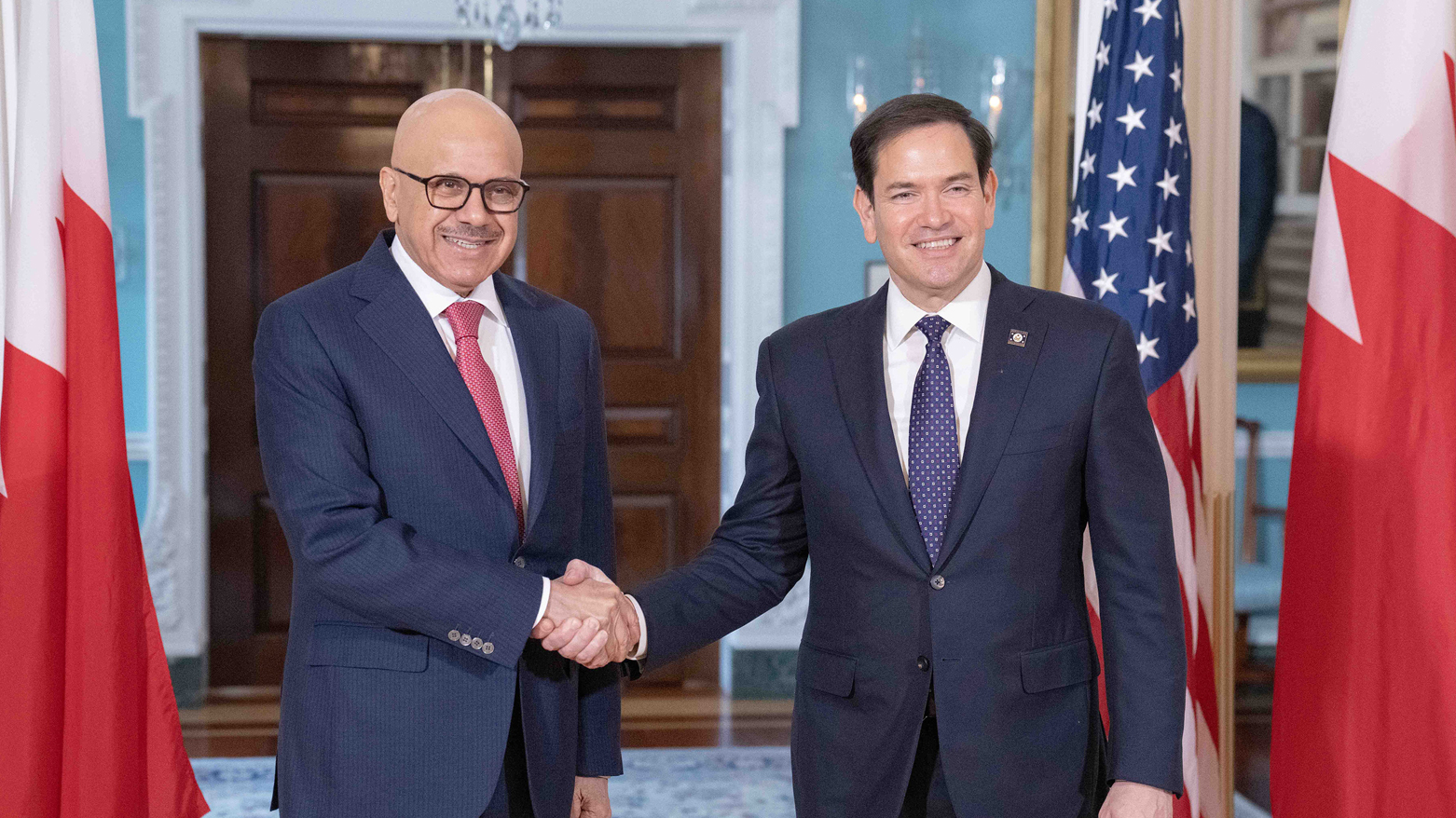Rubio Meets Bahrain FM Amid Trump Administration’s Pro-Saudi Pivot and Iran Confrontation
The US and Bahrain have long been close allies and regional security topped the agenda in their meeting.

WASHINGTON DC, United States (Kurdistan 24) While on a visit to Washington, Bahrain’s Foreign Minister, Dr. Adullatif bin Rashid Al Zayani, met on Wednesday with U.S. Secretary of State Marco Rubio.
The meeting can be seen as part of a strategic shift, in which the Trump administration has reversed the policy of the Biden administration, which came into office seeking to improve ties with Iran.
The Trump administration, instead, has adopted a tough posture toward Shi’ite Iran and a friendly stance toward its historic rival, the Sunni country of Saudi Arabia.
This change was evident already in February, when the Saudi Defense Minister visited Washington—just a month after Trump’s second term began.
Bahrain hosts the major U.S. naval base in the region, where the Fifth Fleet is based. Almost certainly, ships from the Fifth Fleet are involved in the ongoing U.S. conflict with the Iranian-backed Houthis in Yemen.
Read More: US airstrikes pound Yemen's capital overnight, killing at least 1, Houthi rebels say
At the same time, the U.S. has undertaken a major military build-up, aimed at the region. It includes the deployment of B-2 strategic bombers to the island of Diego Garcia, which appears to be a message to Iran.
Read More: US Boosts Military Presence in Middle East, as Sixth Set of Sanctions Issued against Iran
Given the presence of the Fifth Fleet in Bahrain, Zayani’s visit may possibly relate to enhanced coordination regarding U.S. naval operations. In any case, it does represent a strong affirmation of the U.S. commitment to the defense of Bahrain, as both the U.S. and Bahrain made clear in their respective statements.
Rubio-Zayani Meeting
The U.S. and Bahrain have long been close allies, and regional security topped the agenda in the meeting between Rubio and Zayani.
That was reflected in the positive tone, as well as the language, of both the U.S. and Bahraini read-outs of the meeting.
According to the U.S. read-out, the two officials “discussed the important strategic partnership between the United States and Bahrain, including close security cooperation, our shared commitment to safeguarding maritime security and freedom of navigation against Houthi threats, and a shared commitment to peace.”
According to the Bahraini read-out, Zayani congratulated Rubio on his new position, stressing “the keenness of the Kingdom of Bahrain to consolidate the close, longstanding relations of friendship and strategic partnership” between the two countries, along with their combined efforts “to enhance joint cooperation in various fields.”
The two officials “highlighted the U.S.-Bahrain Comprehensive Security Integration and Prosperity Agreement and the Abraham Accords as platforms for joint deterrence, diplomacy security, and regional integration,” the U.S. read-out added, as it concluded, “The Secretary and Foreign Minister reiterated both countries’ support for greater security and stability in the Middle East.”
The Bahraini read-out explained that the Minister had praised “the close partnership between the two countries, stressing his country’s keenness to strengthen the course of the distinguished, longstanding relations between the United States of America and the Kingdom of Bahrain at all levels, and the importance of intensifying efforts to enhance cooperation, coordination, and joint consultation.“
That includes “ways to upgrade bilateral cooperation to more comprehensive horizons,” while the two officials also discussed “the latest developments in Gaza, Lebanon, Syria, and Yemen, and their repercussions on the security and stability of the region and the humanitarian situation.” the Bahraini read-out explained.